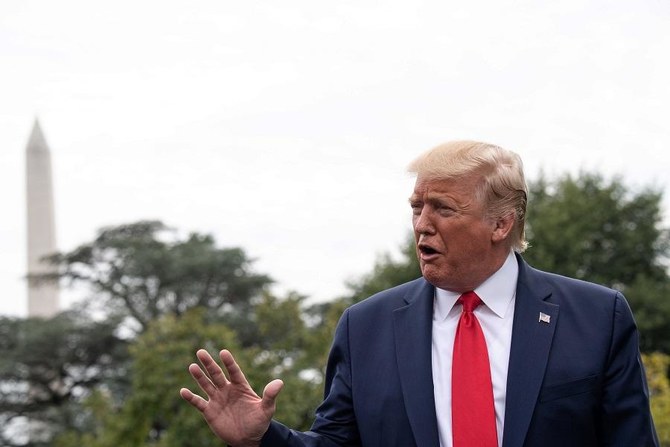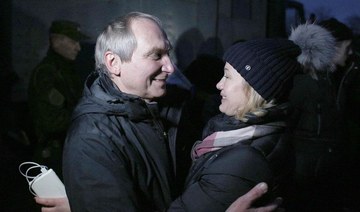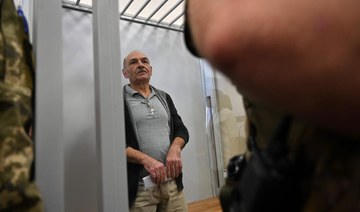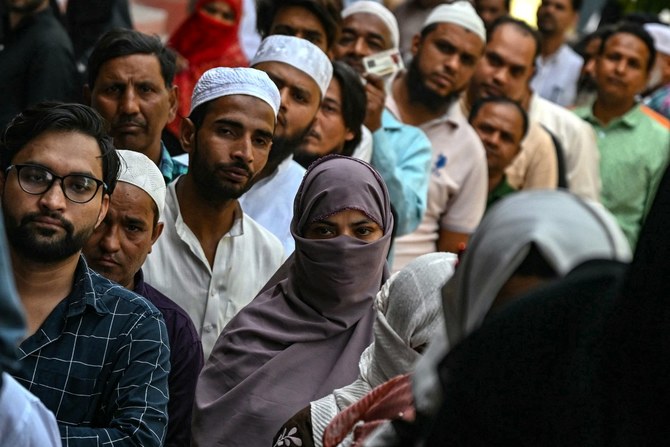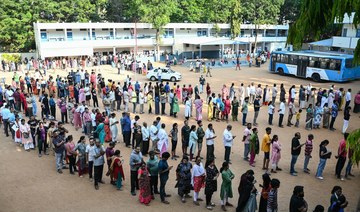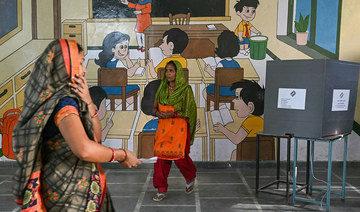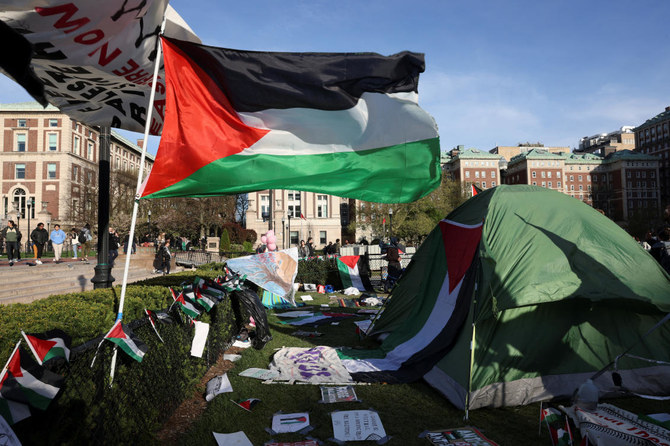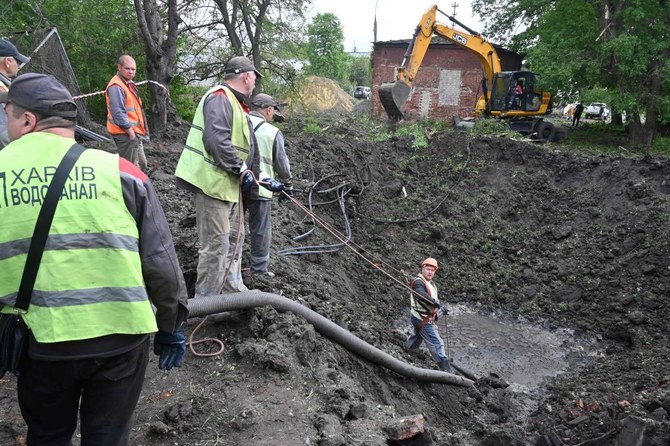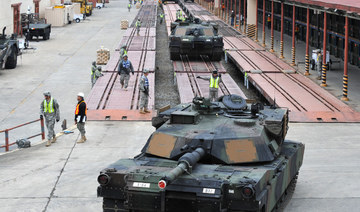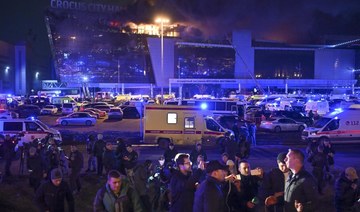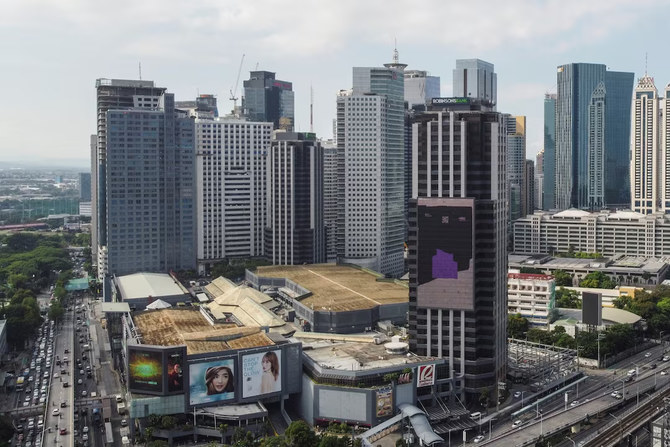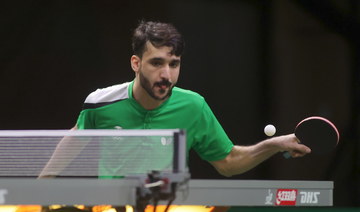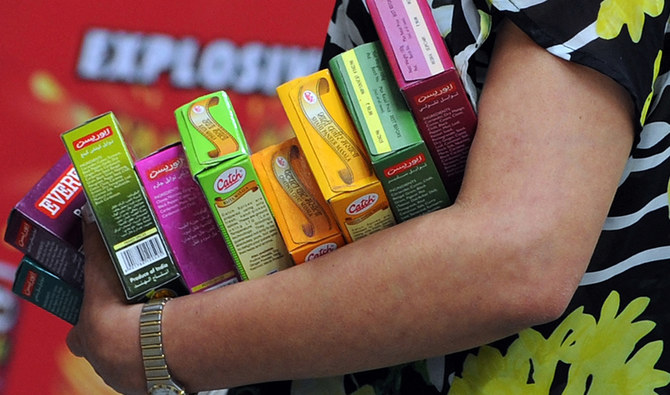WASHINGTON: President Donald Trump urged the new leader of Ukraine this summer to investigate the son of former Vice President Joe Biden, a person familiar with the matter said.
Democrats condemned what they saw as a clear effort to damage a political rival, now at the heart of an explosive whistleblower complaint against Trump.
It was the latest revelation in an escalating controversy that has created a showdown between congressional Democrats and the Trump administration, which has refused to turn over the formal complaint by a national security official or even describe its contents.
Trump defended himself Friday against the intelligence official’s complaint, angrily declaring it came from a “partisan whistleblower,” though he also said he didn’t know who had made it. The complaint was based on a series of events, one of which was a July 25 call between Trump and Ukrainian President Volodymyr Zelenskiy, according to a two people familiar with the matter. The people were not authorized to discuss the issue by name and were granted anonymity.
Trump, in that call, urged Zelenskiy to probe the activities of potential Democratic rival Biden’s son Hunter, who worked for a Ukrainian gas company, according to one of the people, who was briefed on the call. Trump did not raise the issue of US aid to Ukraine, indicating there was not an explicit quid pro quo, according to the person.
Biden reacted strongly late Friday, saying that if the reports are true, “then there is truly no bottom to President Trump’s willingness to abuse his power and abase our country.” He said Trump should release the transcript of his July phone conversation with Zelenskiy “so that the American people can judge for themselves.”
The government’s intelligence inspector general has described the whistleblower’s Aug. 12 complaint as “serious” and “urgent.” But Trump dismissed it all Friday, insisting “it’s nothing.” He scolded reporters for asking about it and said it was “just another political hack job.”
“I have conversations with many leaders. It’s always appropriate. Always appropriate,” Trump said. “At the highest level always appropriate. And anything I do, I fight for this country.” Trump, who took questions in the Oval Office alongside Australian Prime Minister Scott Morrison, whom he was hosting for a state visit, was asked if he knew if the whistleblower’s complaint centered on his July 25 phone call with Ukrainian President Zelenskiy.
The president responded, “I really don’t know,” but he continued to insist any phone call he made with a head of state was “perfectly fine and respectful.”
Trump was asked Friday if he brought up Biden in the call with Zelenskiy, and he answered, “It doesn’t matter what I discussed.” But then he used the moment to urge the media “to look into” Biden’s background with Ukraine. There has yet to be any evidence of any wrongdoing by Biden or his son regarding Ukraine.
Trump and Zelenskiy are to meet on the sidelines of the United Nations next week. The Wall Street Journal first reported that Trump pressed Zelenskiy about Biden. The standoff with Congress raises fresh questions about the extent to which Trump’s appointees are protecting the Republican president from oversight and, specifically, whether his new acting director of national intelligence, Joseph Maguire, is working with the Justice Department to shield the president.
Democrats say the administration is legally required to give Congress access to the whistleblower’s complaint, and Rep. Adam Schiff of California has said he will go to court in an effort to get it if necessary. The intelligence community’s inspector general said the matter involves the “most significant” responsibilities of intelligence leadership.
House Democrats also are fighting the administration for access to witnesses and documents in impeachment probes. In the whistleblower case, lawmakers are looking into whether Trump lawyer Rudy Giuliani traveled to Ukraine to pressure the government to aid the president’s reelection effort by investigating the activities of Biden’s son.
During a rambling interview Thursday on CNN, Giuliani was asked whether he had asked Ukraine to look into Biden. He initially said, “No, actually I didn’t,” but seconds later he said, “Of course I did.” Giuliani has spent months trying to drum up potentially damaging evidence about Biden’s ties to Ukraine. He told CNN that Trump was unaware of his actions.
“I did what I did on my own,” he said. “I told him about it afterward. Still later, Giuliani tweeted, “A President telling a Pres-elect of a well known corrupt country he better investigate corruption that affects US is doing his job.” Democrats have contended that Trump, in the aftermath of special counsel Robert Mueller’s Russia investigation, may have asked for foreign assistance in his upcoming reelection bid.
Trump further stoked those concerns earlier this year in an interview when he suggested he would be open to receiving foreign help.The inspector general appeared before the House intelligence committee behind closed doors Thursday but declined, under administration orders, to reveal to members the substance of the complaint.
Schiff, a California Democrat, said Trump’s attack on the whistleblower was disturbing and raised concerns that it would have a chilling effect on other potential exposers of wrongdoing. He also said it was “deeply disturbing” that the White House appeared to know more about the complaint than its intended recipient — Congress.
The information “deserves a thorough investigation,” Schiff said. “Come hell or high water, that’s what we’re going to do.” Among the materials Democrats have sought is a transcript of Trump’s July 25 call with Zelenskiy. The call took place one day after Mueller’s faltering testimony to Congress effectively ended the threat his probe posed to the White House. A readout of the call released from the Ukrainian government said Trump believed Kyiv could complete corruptions investigations that have hampered relations between the two nations but did not get into specifics.
Sen. Chris Murphy of Connecticut, who in May called for a probe of Giuliani’s effort in Ukraine, said in an interview on Friday it’s “outrageous” the president has been sending his political operative to talk to Ukraine’s new president. Murphy tweeted that during his own visit it was clear to him that Ukraine officials were “worried about the consequences of ignoring Giuliani’s demands.”
The senator tweeted that he told Zelenskiy during their August visit it was “best to ignore requests from Trump’s campaign operatives. He agreed.” House Speaker Nancy Pelosi said Trump faces “serious repercussions” if reports about the complaint are accurate. She said it raises “grave, urgent concerns for our national security.”
Letters to Congress from the inspector general make clear that Maguire consulted with the Justice Department in deciding not to transmit the complaint to Congress in a further departure from standard procedure. It’s unclear whether the White House was also involved, Schiff said.
Maguire has refused to discuss details of the whistleblower complaint, but he has been subpoenaed by the House panel and is expected to testify publicly next Thursday. Maguire and the inspector general, Michael Atkinson, also are expected next week at the Senate intelligence committee.
Atkinson wrote in letters that Schiff released that he and Maguire had hit an “impasse” over the acting director’s decision not to share the complaint with Congress. Atkinson said he was told by the legal counsel for the intelligence director that the complaint did not actually meet the definition of an “urgent concern.” And he said the Justice Department said it did not fall under the director’s jurisdiction because it did not involve an intelligence professional.
Atkinson said he disagreed with that Justice Department view. The complaint “not only falls under DNI’s jurisdiction,” Atkinson wrote, “but relates to one of the most significant and important of DNI’s responsibilities to the American people.”



